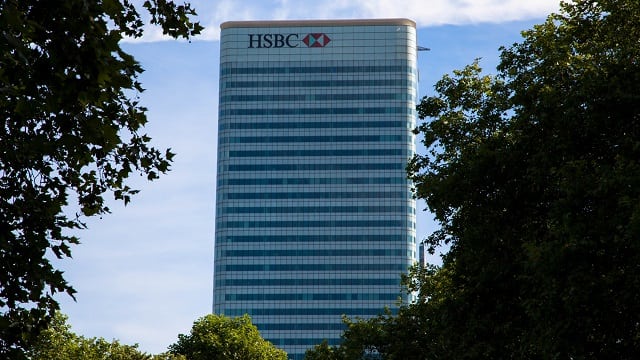Adjusted profit for the bank was up by 11% or $2.1bn to $21.0bn when compared with 2016, a year when the bank faced one-off costs and sold its Brazil business.
However, while the results were an improvement on 2016’s figures, the FTSE 100 bank’s profits are still lower than the $18.9bn recorded in 2015. This was reflected in HSBC’s shares which were down 3.45% on Tuesday morning.
Despite this, revenue grew for the first time in six years and was up 5% to $51.5bn on an adjusted basis. Operating expenses dropped to $34.9bn from $39.8bn.
HSBC said that this was largely thanks to its recent pivot to Asia, which has been generating returns and driving over 75% of the group’s reported and adjusted profit in 2017.
The full year results are the last under chief executive Stuart Gulliver, who is set to depart after more than 37 years at the bank.
Commenting on the figures, he said: “These good results demonstrate the strength and potential of HSBC. All our global businesses grew adjusted profits and we concluded the transformation programme that we started in 2015. HSBC is simpler, stronger, and more secure than it was in 2011.”
Gulliver, who will hand over to John Flint on Wednesday, added: “It has been my great privilege to lead HSBC for the last seven years, and in handing over to John I am confident the organisation is in great hands.”
Market reaction
HSBC’s results were generally regarded as somewhat of a mixed bag by investors and City analysts, one of the reasons for its share price wobble on Tuesday.
Investment director Russ Mould at AJ Bell said the downward movement in share price on the day reflects lower investor confidence. Although the bank has shown its “best growth in customer deposits and loans since early 2014”, shares are down because it is “as if investors are politely telling the new management team of chair Mark Tucker and chief executive John Flint not to get too aggressive when it comes to future expansion plans or even acquisitions.”
He added: “This may be because return on equity is still way below the group’s 10% target and investors are becoming more wary of risk-taking as interest rates rise and financial conditions start to tighten, albeit slowly, from the loosest they have been in centuries.”
However, William William Howlett, bank analyst at Quilter Cheviot, noted several positive takeaways from HSBC’s latest update and said the bank looked to be “in good shape” as Gulliver departs.
“We remain positive on the UK banks as a hedge against inflation, rising long-term interest rates and reflecting discounted valuations relative to the market.
“We believe Stuart Gulliver leaves HSBC in good shape having achieved most of his objectives set out in the strategy update in 2015. Notably, the pivot to Asia is paying off with adjusted PBT up 13% in 2017 and the region making up over 75% of group profit.
“HSBC also grew revenue for the first time in six years following an extensive restructuring which involved withdrawal from more than half the countries the bank previously operated in. While Q4 adjusted PBT of $3.6bn was 8% below consensus driven by weaker revenues and costs, business momentum remains healthy with loans up 7% year-on-year.”







